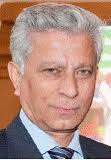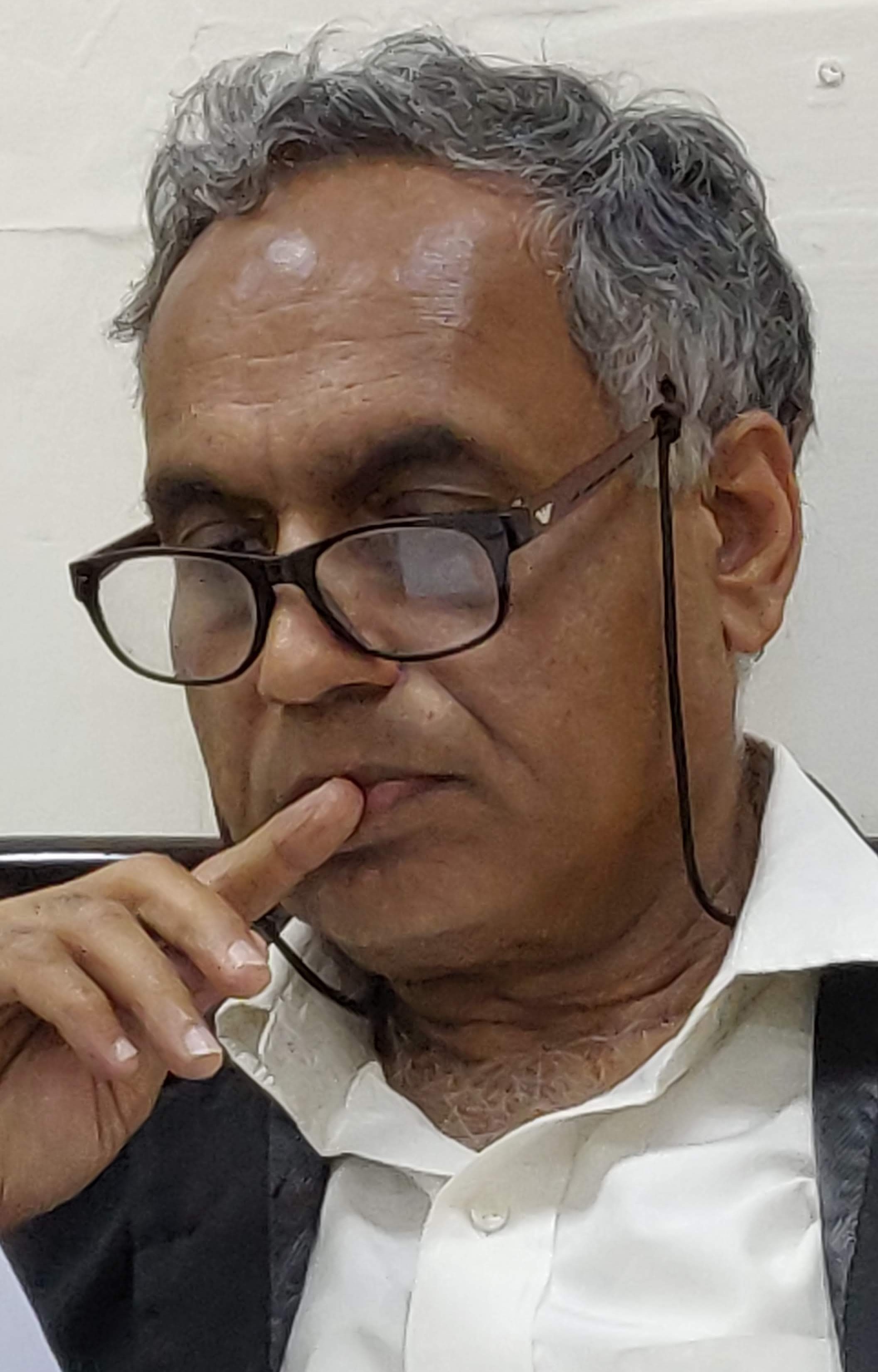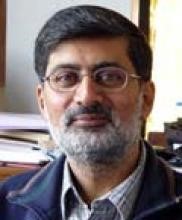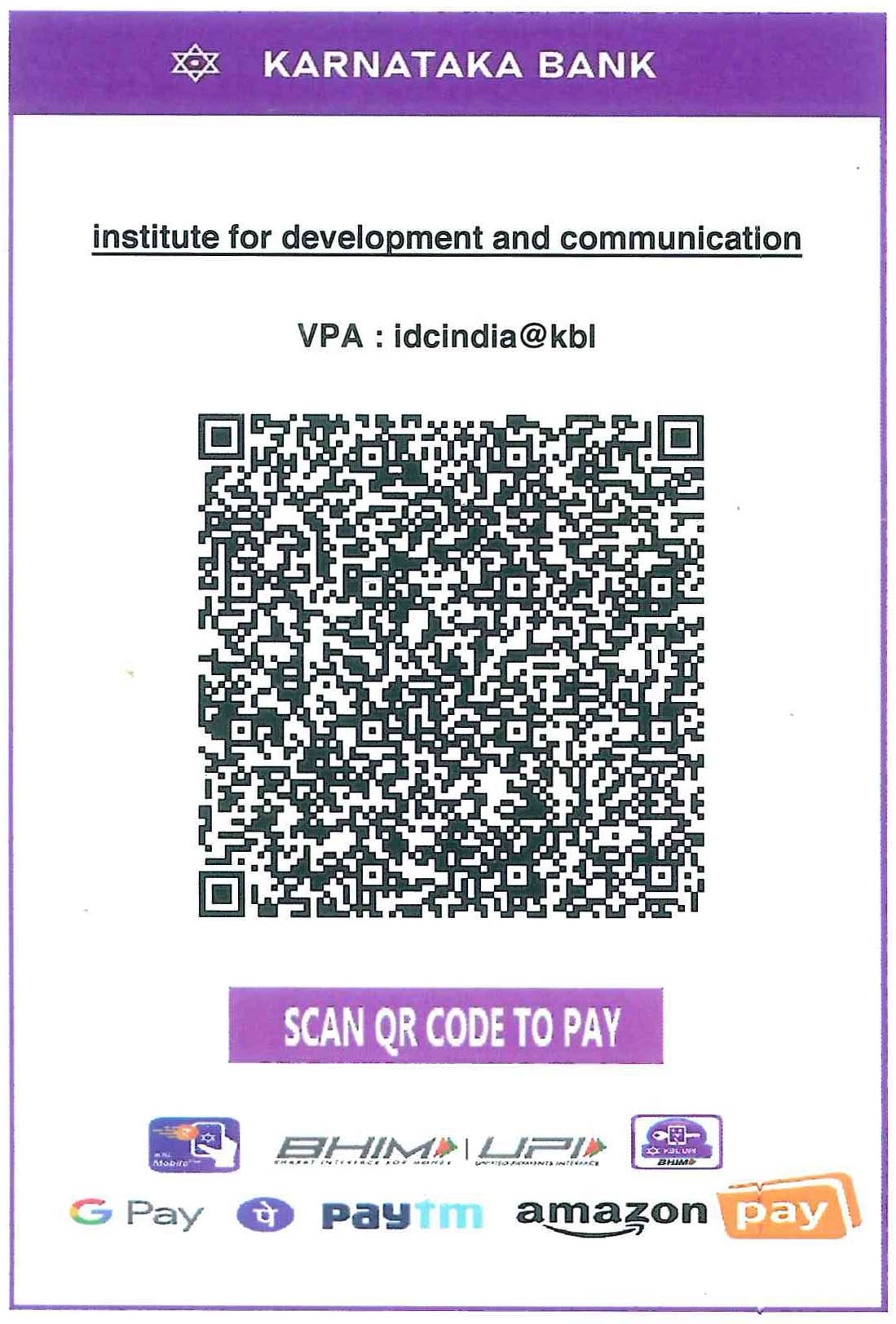INSTITUTE FOR DEVELOPMENT AND COMMUNICATION (IDC)
Cordially Invites You for the
PROF. RANDHIR SINGH MEMORIAL LECTURE SERIES 2023-24
The Ten lecture series shall cover wide range of themes. The series has been specially designed to provide perspectives for objective understanding and scientific interpretation from interdisciplinary frame. The dialogue shall be helpful to enable students in particular, to distinguish between what humans can do and that they ought to do. Further, it shall empower to select relevant facts, as facts can be interpreted differently in different contexts. Moreover, shall impart skills to collect, interpret and analyse social reality with a holistic perspective.
First set of Three Lectures: Talking Sociology
26TH APRIL 2023 – LECTURE I:
FROM THINGS TO RELATIONS: EXAMINING MODERNISATION AS A SOCIOLOGICAL CONCEPT
[Prof. Dipankar Gupta]
12TH MAY 2023 – LECTURE II:
THE GREAT INDIAN EXPERIMENT: A MODEL FOR THE WORLD OR AN ABBERRATION?
[Prof. Salil Misra]
PROF. RANDHIR SINGH MEMORIAL LECTURE SERIES 2023-24
The Ten lecture series shall cover wide range of themes. The series has been specially designed to provide perspectives for objective understanding and scientific interpretation from interdisciplinary frame. The dialogue shall be helpful to enable students in particular, to distinguish between what humans can do and that they ought to do. Further, it shall empower to select relevant facts, as facts can be interpreted differently in different contexts. Moreover, shall impart skills to collect, interpret and analyse social reality with a holistic perspective.
First set of Three Lectures: Talking Sociology
26TH APRIL 2023 – LECTURE I:
FROM THINGS TO RELATIONS: EXAMINING MODERNISATION AS A SOCIOLOGICAL CONCEPT
[Prof. Dipankar Gupta]
12TH MAY 2023 – LECTURE II:
THE GREAT INDIAN EXPERIMENT: A MODEL FOR THE WORLD OR AN ABBERRATION?
[Prof. Salil Misra]
Programme Schedule
| Time | Details |
|---|---|
| 10:30 – 11:00 AM | Registration & Fellowship |
| 11:00 – 11:05 AM | Welcome Address – Dr Chandan Awasthi, Deputy Director IDC |
| 11:05 – 11:10 AM | About Prof. Randhir Singh Memorial Lecture Series – Prof. Pramod Kumar, Chairperson IDC |
| 11:10 – 12:10 PM | The Great Indian Experiment: A Model for the World or an Aberration? – Prof. Salil Misra, Dr. B.R. Ambedkar University, Delhi |
| 12:10 – 12:30 PM | Open House |
| Vote of Thanks – Dr. Varinder Sharma, Director IDC |
Upcoming Lectures
| Sr. No | Date | Topic | By |
|---|---|---|---|
| Lecture III | 11th August 2023(11:00 AM Onwards) | Interrogating Foundations of Economic Policy in Contemporary India | Prof. Atul Sood |
Mode: |
Online And Offline |
Venue: |
Conference Hall, Institute for Development and Communication (IDC), Sector 38A, Chandigarh. |
Details for Payment: |
|
One Time Registration Fee: Rs. 500/- for Online. |
|
Offline Participation is Free of Cost. |
|
Account Name: |
Institute for Development and Communication (IDC) |
Account Number: |
SB Account No. 1462500100048301 |
Bank & Branch: |
Karnataka Bank Ltd., Sector 38D, Chandigarh |
MICR Code: |
160052004 |
IFSC: |
KARB0000176 |
Imp: Kindly Provide the Screenshot of Payment during Registration |
|
Payment Link |
|
For Payment Scan the QR Code |
|
Abstract: Modernity is seen largely in terms of “things” and not as much as “relations between people”. Consequently, it gets primarily attached to things such as technology, slums, smoking chimneys, and now ecological desecration too. But rarely with how we, as social beings, connect to and relate with one another.
Biographical Note

Prof. Dipankar Gupta is a distinguished and renowned sociologist. He taught at Jawaharlal Nehru University (JNU), Delhi. He has researched on a number of socially relevant themes and conducted several field-based studies ranging from ethnicity to caste to farmers’ mobilization to modernity and agrarian distress. Besides teaching and research engagements, Prof. Gupta is actively involved in advisory capacities in several educational and research institutions. In addition, he is also on the editorial board of several scholarly journals in India and abroad.He has authored and co-authored 22 books and has written over a hundred articles in various scholarly journals. He also writes frequently in popular journals, magazines and newspapers. He believes that communication with the non-academic audience can only help in the wider dissemination of research findings in the enrichment of public knowledge. His recent book Checkpoint Sociology: A Cultural Reading of Policies and Politics was published by Aakaar Books in 2022.
Abstract: History gives meaning to present and shape our future. It’s an unending dialogue between the present and the past. How to interpret history and attribute meanings to the competing facts of history? Prof. Salil Misra shall provide us with his perspective and illustrates through his intense analysis of the National Freedom Movement. The lecture will present the picture of the Indian National Movement as one of the great social experiments, carried out in the 20th century, along with an overview of the complex journey of the Indian republic and speculate on the possibilities ahead
Biographical Note

Prof. Salil Misra is a Professor of History at the Ambedkar University, Delhi. Salil Misra was involved in the collection of documents for the research project “Towards Freedom” for the year 1942, sponsored by the Indian Council of Historical Research (ICHR), as a member of the editorial team. He was awarded PhD on Communal Politics in UP, 1937-39. His publications include a monograph on A Narrative of Communal Politics: Uttar Pradesh, 1937-39, and a small booklet in Hindi on the Swaraj Party brought out by the National Book Trust.
Abstract: Any mention of economic policy in India, at the popular level, carries with it the idea that policies are the same, irrespective of the regime that comes to power. Is it a myth or a reality? The lecture shall interrogate myth or reality debate by locating it in key issues like Growth and Distribution; Globalization and National Development; Employment and Skills; and Labour and Welfare. Taking examples from everyday policy discourse, this lecture shall argue for understanding policies to build a case for “a more effective people’s intervention in what is happening in our country.”
Biographical Note

Prof. Atul Sood is a Professor of Economics at Jawaharlal Nehru University, New Delhi. Dr. Sood had a visiting appointment at the Concordia University, Montreal, Canada in 2008. Prof. Sood obtained his Ph. D from the University of Ottawa, Canada on The Economics of Government Deficits. His current research interests are Globalisation and its implications for regional development and Institutional and regulatory issues that strengthens equity and the rights of the marginalized and deprived social groups.




